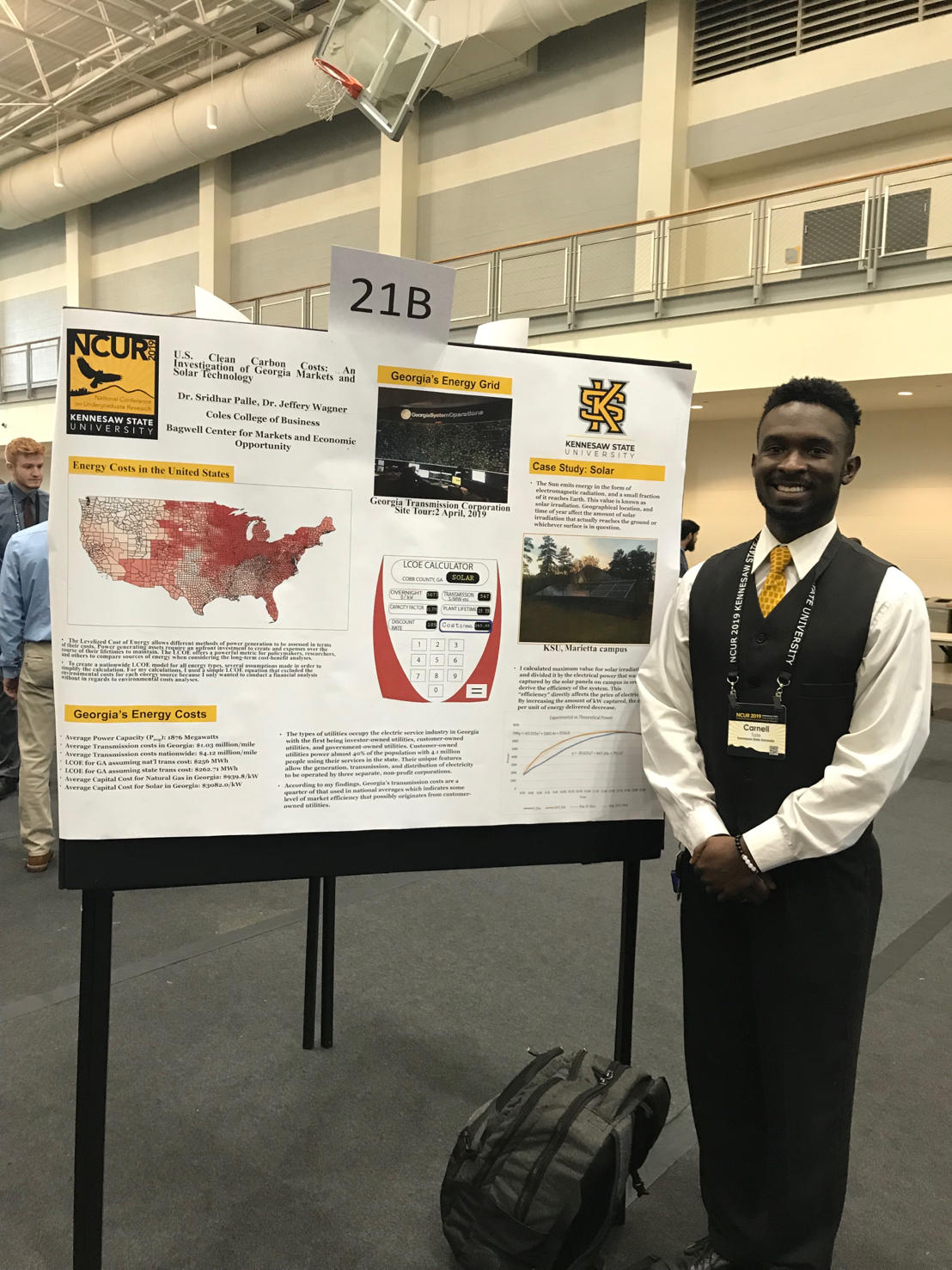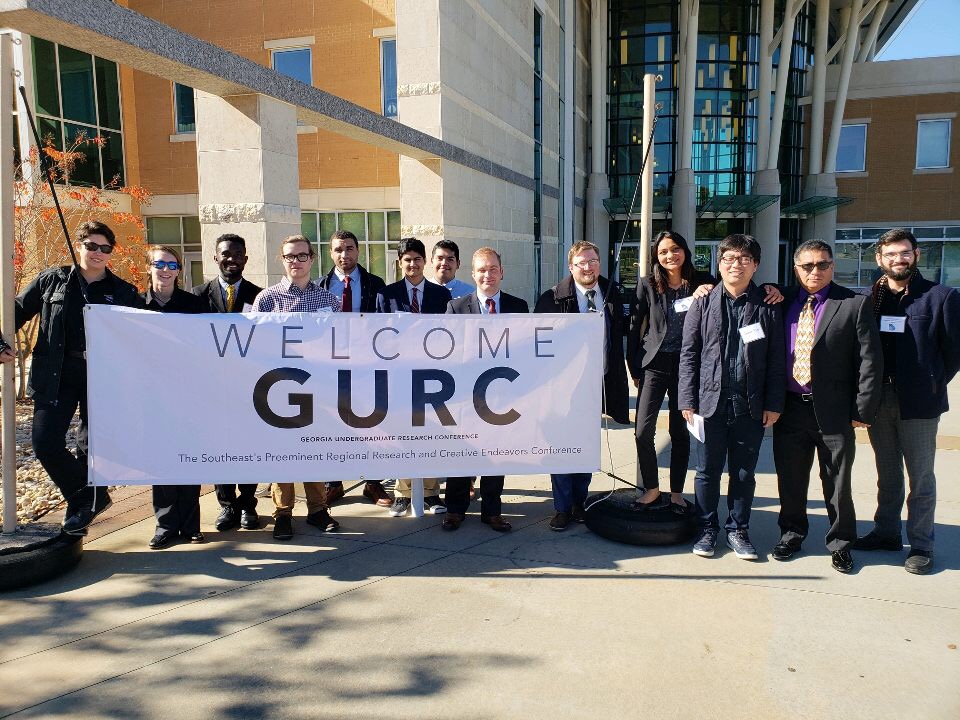TALON'TED UNDERGRADUATE RESEARCHER
MARIETTA, Ga. (May 3, 2019) —
Explore the Possibilities
The Office of Undergraduate Reseach provides Kennesaw State undergraduate students with faculty-mentored opportunities to interact in all phases of the research process. Undergraduates develop their inquiry and analytical skills as they investigate topics in disciplines across campus which match their interests and career aspirations. Carnell Tate of Holly Springs is one of KSU's Talon'ted Undergraduate Researchers making the transformation from a consumer to a producer of knowledge.
Tate is a junior mechanical engineering major in Southern Polytechnic College of Engineering and Engineering Technology with a German minor. He had the opportunity to present at undergraduate academic conferences at both the state and national levels this year. In fall 2018, Tate and Alisa Machiwalla, also a mechanical engineering major at KSU, attended the Georgia Undergraduate Research Collective (GURC) conference hosted by the University of North Georgia. In spring 2019, he was one of about 400 KSU undergraduates to participate in the National Conference on Undergraduate Research (NCUR), the largest conference of its kind in the country, which was hosted by KSU. He also has served as vice president for the KSU chapter of the Association of Energy Engineers, and most recently was selected as president of the KSU chapter.
Please describe the projects you presented at both conferences?
At GURC, Alisa and I were modeling a way to predict how temperature behaves given the geometry or shape of the core of a specifc nuclear reactor called the Molten Salt Reactor (MSR). This is a nuclear fission reactor that uses a liquid fuel salt instead of solid fuel as the fuel and coolant. Nuclear reactors are usually used at nuclear power plants, for example, to generate electricty. In our research, we plan to manipulate the shape of the reactor core to minimize heat build-up. Since we know how temperature and velocity are related, the key is finding the optimal reactor design which reduces drastic variations in both.
For NCUR, I mapped how geographical variations affect energy costs throughout the United States by using a Levelized Cost of Energy (LCOE) model. The objective was to breakdown nationwide costs and investigate the assumptions that are made on a state level; in this case, Georgia was the chosen sample to explore how challenges in solar technology affect the cost of clean carbon energy.
How did you get involved in undergraduate research?
I got involved in undergraduate research by first reaching out to the Nuclear Energy, Science, and Engineering Laboratory (NESEL), a multi-disciplinary research organization in Southern Polytechnic College of Engineering and Engineering Technology. I did this because initially I started economic research on energy utility markets with the Bagwell Center for the Study of Markets and Economic Opportunity in Coles College of Business. The NESEL group I work with now relates to the economic research I am conducting. I believe this allows me to explore an interesting intersection of engineering and finance.
Why is undergraduate research important to you?
Research contributes to the world's ever growing knowledge pool and impacts the world. More importantly, for the researcher, it allows us to apply current knowledge and transfer the skills we learn in the classroom into tangible results.
My heart is imbued with gratitude towards Kennesaw State University, and as a proud student, I look forward to furthering our impact in the academic community.
Undergraduate research partners Carnell Tate (third from left) and Alisa Machiwalla (fourth from right) attended the GURC conference with their peers and faculty mentors from the Southern Polytechnic College of Engineering and Engineering Technology in November 2018.
What are your career goals?
My career will be in project management and energy consulting with a focus on public policy. I plan to use my background in energy to fulfill two main goals. The first goal is to advance the energy infrastructures in the American economy through business relationships, public policy, and grassroots communities. My second goal is to ensure affordable energy access to developing communities around the world through charity, business development, and public policy.
— Joëlle Walls












